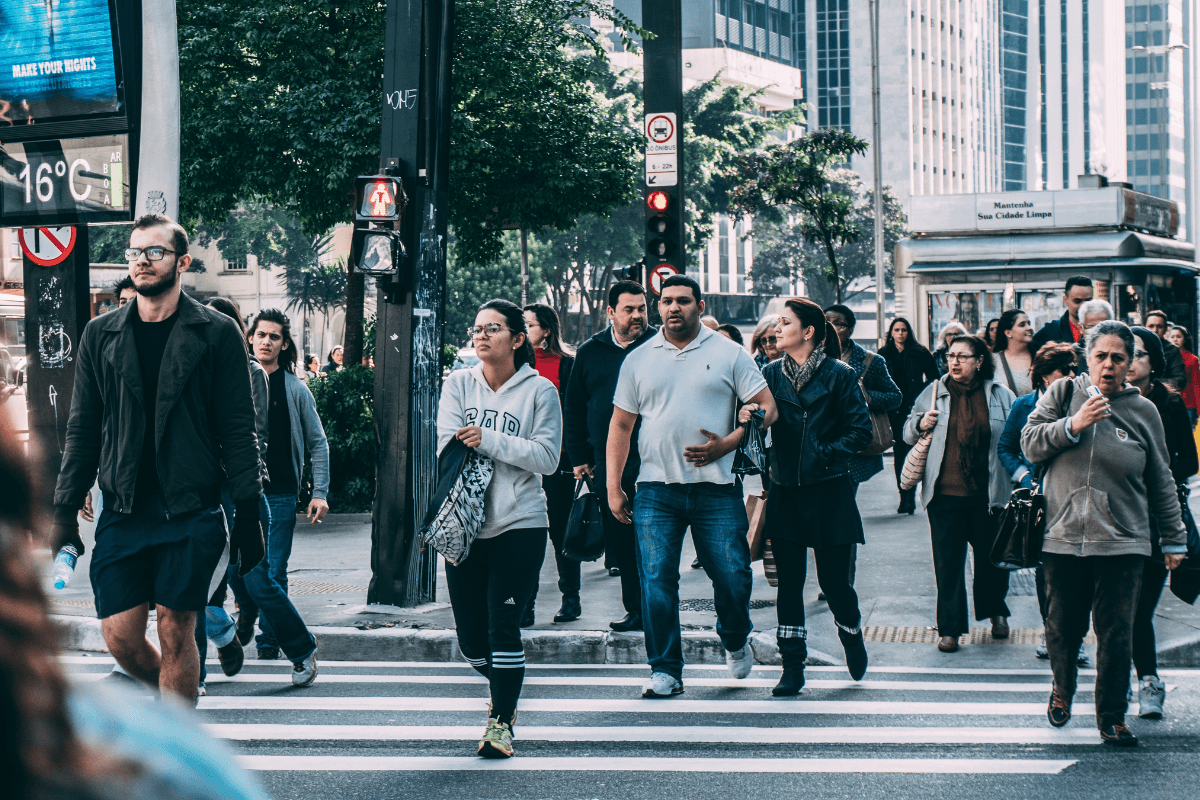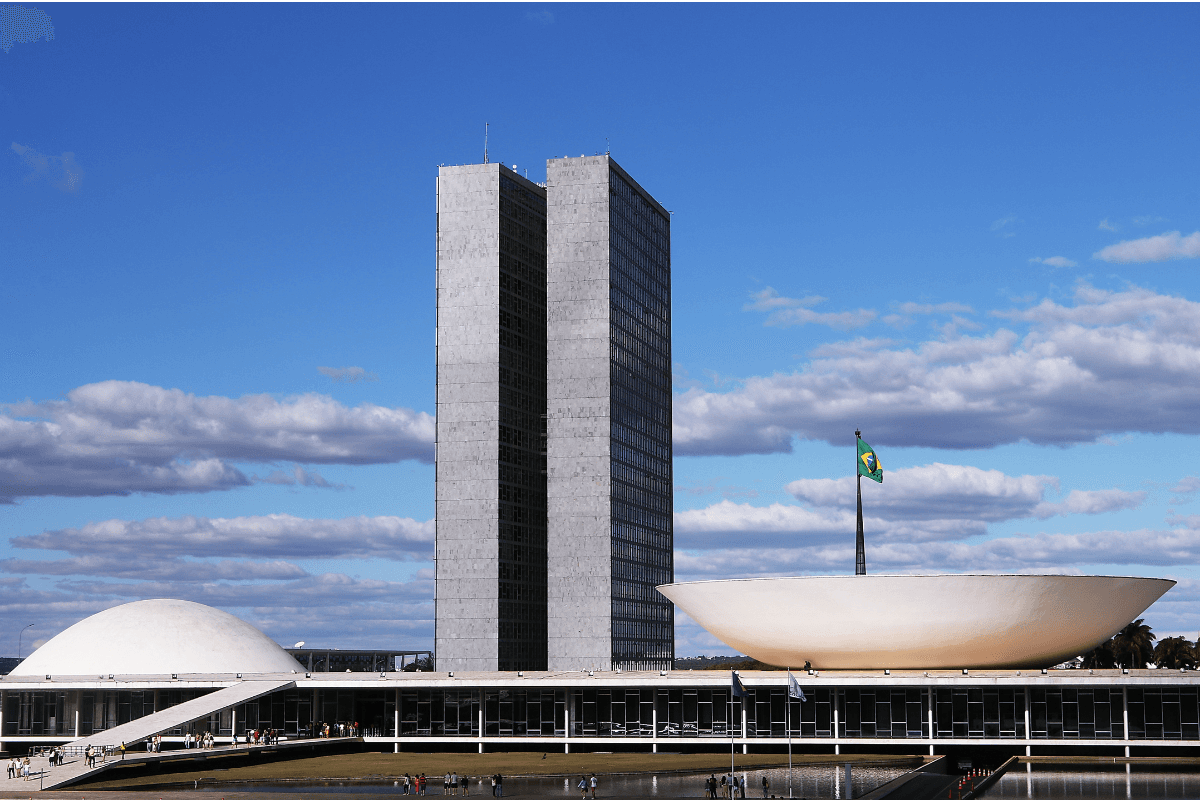Join policymakers and business leaders and get the best newsletter of the Americas on what matters in Brazilian and Latin American politics, business, and society
Join policymakers and business leaders and get the best newsletter of the Americas on what matters in Brazilian and Latin American politics, business, and society
Start your 7-day free trial
Start your 7-day free trial


Read by professionals at
Read by
professionals at
Explore our
NEWSLETTERS
Explore our
NEWSLETTERS
Explore our
NEWSLETTERS
Don't miss a beat. Our newsletter gives you clear, trusted insights into Brazil and Latin America’s latest developments — keeping you informed, engaged, and ready for what’s next.
Don't miss a beat. Our newsletter gives you clear, trusted insights into Brazil and Latin America’s latest developments — keeping you informed, engaged, and ready for what’s next.
Don't miss a beat. Our newsletter gives you clear, trusted insights into Brazil and Latin America’s latest developments — keeping you informed, engaged, and ready for what’s next.


Brazil
SOCIETY
Your guide to the largest economy in Latin America, from finance to infrastructure and innovation.


Brazil
SPORTS
Your guide to the largest economy in Latin America, from finance to infrastructure and innovation.


Brazil
CLIMATE
Your guide to the largest economy in Latin America, from finance to infrastructure and innovation.


Brazil
BUSINESS
Your guide to the largest economy in Latin America, from finance to infrastructure and innovation.


Brazil
AGRO
Essential for anyone following global food markets — with updates on Brazil’s pivotal role in food security.


Guide to
BRAZIL
Go beyond the surface and dive into Brazilian culture, news, and societal trends.


Brazil
BUSINESS
Your guide to the largest economy in Latin America, from finance to infrastructure and innovation.


Brazil
CLIMATE
Updates on Brazil's environmental impact — because what happens here affects the planet.


Brazil
AGRO
Essential for anyone following global food markets — with updates on Brazil’s pivotal role in food security.


Brazil
SPORTS
More than scores, we explore Brazilian sports' powerful stories and business side.


Brazil
SOCIETY
Go beyond the surface and dive into Brazilian culture, news, and societal trends.


Brazil
BUSINESS
Your guide to the largest economy in Latin America, from finance to infrastructure and innovation.


Brazil
CLIMATE
Updates on Brazil's environmental impact — because what happens here affects the planet.


Brazil
AGRO
Essential for anyone following global food markets — with updates on Brazil’s pivotal role in food security.


Brazil
SPORTS
More than scores, we explore Brazilian sports' powerful stories and business side.
7 newsletters, AM and PM, straight to your inbox.
You choose what you want to receive.
7 newsletters, AM and PM, straight to your inbox.
You choose what you want to receive.
AWARD-WINNING NEWSROOM
AWARD
WINNING NEWSROOM



best newsletter
best newsletter
WAN-IFRA 2023 · 2025
WAN-IFRA 2023 · 2025


best
story
best
story
2024 Digiday Media Awards
2024 Digiday Media Awards
Join our
debates
Join our
DEBATES
Join our
debates
Every two months, we invite top-tier experts to discuss pressing issues related to Brazil, and share exclusive insights that decision-makers recognize as invaluable
Every two months, we invite top-tier experts to discuss pressing issues related to Brazil, and share exclusive insights that decision-makers recognize as invaluable
Every two months, we invite top-tier experts to discuss pressing issues related to Brazil, and share exclusive insights that decision-makers recognize as invaluable
Reasons to
subscribe
Reasons to
SUBSCRIBE
Reasons to
subscribe
Reasons to
subscribe
Your time is valuable, and so is staying informed. Subscribing gives you direct access to curated stories, expert opinions, and all the tools you need to stay ahead.
Your time is valuable, and so is staying informed. Subscribing gives you direct access to curated stories, expert opinions, and all the tools you need to stay ahead.
Your time is valuable, and so is staying informed. Subscribing gives you direct access to curated stories, expert opinions, and all the tools you need to stay ahead.
Voices that cut
through the noise
Voices that cut
through the noise
Voices that cut
through the noise
Hear directly from the people who know the stories best. Our writers are industry experts who break down complex topics with a unique perspective and a clear voice.
Hear directly from the people who know the stories best. Our writers are industry experts who break down complex topics with a unique perspective and a clear voice.
Hear directly from the people who know the stories best. Our writers are industry experts who break down complex topics with a unique perspective and a clear voice.
Comprehensive
COVERAGE
IN ONE PLACE
Comprehensive
COVERAGE
IN ONE PLACE
Comprehensive
COVERAGE
IN ONE PLACE
Why subscribe to dozens of newsletters when you can get everything in one?
Business, climate, society, and beyond—we’ve got it covered.
Why subscribe to dozens of newsletters when you can get everything in one?
Business, climate, society, and beyond—we’ve got it covered.
Why subscribe to dozens of newsletters when you can get everything in one?
Business, climate, society, and beyond—we’ve got it covered.
Tailored content
DIRECT TO YOUR INBOX
Tailored content
DIRECT TO YOUR INBOX
Tailored content
DIRECT TO YOUR INBOX
Handpicked stories that make a difference, delivering only what matters, straight to your inbox. Ensuring you receive high-quality content that’s relevant, timely, and valuable.
Handpicked stories that make a difference, delivering only what matters, straight to your inbox. Ensuring you receive high-quality content that’s relevant, timely, and valuable.
Handpicked stories that make a difference, delivering only what matters, straight to your inbox. Ensuring you receive high-quality content that’s relevant, timely, and valuable.
Claim your free 7-day trial and dive into the best of our journalism.
Claim your free 7-day trial and dive into the best of our journalism.
Claim your free 7-day trial and dive into the best of our journalism.
Start your 7-day free trial
Start your 7-day free trial
Join the
CONVERSATION
Join the
CONVERSATION
Join the
CONVERSATION
HEAR FROM OUR READERS
HEAR FROM OUR READERS
HEAR FROM OUR READERS
"I discovered your service as I begin my Portuguese language learning journey. I have a background in International Trade Compliance and am finding your service delightfully informative and greatly appreciate the depth of your analysis - Love your work!"
"I discovered your service as I begin my Portuguese language learning journey. I have a background in International Trade Compliance and am finding your service delightfully informative and greatly appreciate the depth of your analysis - Love your work!"
James Z.
James Z.
TBR Subscriber
TBR Subscriber
"The Brazilian Report is a great source for English speakers interested in understanding current events in Brazil. Thanks for the work you do."
"The Brazilian Report is a great source for English speakers interested in understanding current events in Brazil. Thanks for the work you do."
Steve K.
Steve K.
TBR Subscriber
TBR Subscriber
Fantastic coverage, focused on Brazil yet relevant globally!
Fantastic coverage, focused on Brazil yet relevant globally!
Andrey N.
Andrey N.
TBR Subscriber
TBR Subscriber
© 2024 - The Brazilian Report -
News from Brazil in English | Politics, Economics
© 2024 - The Brazilian Report -
News from Brazil in English | Politics, Economics
© 2024 - The Brazilian Report -
News from Brazil in English | Politics, Economics
© 2024 - The Brazilian Report -
News from Brazil in English | Politics, Economics































